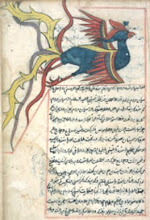MAUNSELL WICKES GALLERY OPENS AN EXHIBITION CELEBRATING WOMEN’S CONNECTION TO COUNTRY: JUNO GEMES, JUDITH NANGALA CRISPIN, ANA POLLAK, ON SEPTEMBER 17
Sydney, September 4 2019: For immediate release
A new exhibition at Maunsell Wickes Gallery will feature the work of three Australian women artists with deep connections to Country. Gallery Director Dominic Maunsell has brought these artists together in order to underscore the fragility and beauty of our natural landscape, and the importance of women’s voices in Australian culture. The exhibition will present Judith Nangala Crispin’s Lumachrome Glass Prints honouring fallen animals and birds, Juno Gemes’s photographs of life on the Hawkesbury River and Ana Pollak’s sculptures reflecting the myriad natural forms on Dangar Island. The work will be on display from September 17-October 5, 2019.
Judith Nangala Crispin is an artist and poet of Bpangerang descent. Her lumachrome glass prints are deeply rooted in the practice of honouring fallen animals and birds. Judith’s materials are drawn from the landscape–cadavers, ochres, sticks, grass and leaves. Exposed 24 to 40 hours in natural sunlight, this body of work is a genuine collaboration with Country. Her work is “layered with intellectual and spiritual meaning . . . the images are in an active relationship with the environment to which she is responding. Her images tell, and are made from, stories: of her family roots, the lives and culture of her people, and of the living things that are part of her physical process.” (James Burnett – MONK art and the soul | an imaginarium, Spring 2019).
Photographer Juno Gemes has spent four decades documenting the Aboriginal resistance in Australia. Her current exhibition features work from her book “The Language of Oysters” written with her poet husband Robert Adamson. These images are a quiet account of their life together on the Hawkesbury River. Gemes’s work, much of which is held in national institutions, has been a major contribution to Australian photography and a lasting historical record. “Artist-photographer Juno Gemes’s lifelong consideration and love for the land and its peoples is present in all her work. It is also an affirmation of an active female presence in the landscape and the character of the photographer behind all her work. This exhibition of a photographer with a ‘loving eye’ offers a rich and engaging experience” (Rod Pattenden – The Australian, 9th May 2019).
Dobell Prize winner Ana Pollak works in sculpture, drawing and film. Her work has grown out of her love for the environment and Chinese calligraphy, focusing on the huge range of textures and lines in the Hawkesbury sandstone country where she lives. Ana Pollak’s sculptures are made with the twigs from the Blackbutt forest on Dangar Island. As in the marks and structures made by birds, animals and insects her work. The comparable work of birds, animals and insects “points to the universality of Ana’s expression. It reaches from the devastation of war-torn Europe across the Australian isle to our Asian future”. (Tony Twigg, SLOT, January 2018).
Contact information:
Maunsell Wickes at Barry Stern Galleries
19 Glenmore Rd, Paddington NSW 2021 Sydney
Director Dominic Maunsell
mw_art@bigpond.net.au
T: 61 2 9331 4676
F: 61 2 9380 8485
Judith Nangala Crispin
jmcrispin@gmail.com
Artist, Juno Gemes, jmgemes@gmail.com
Artist, Ana Pollak, anapollak@hotmail.com








